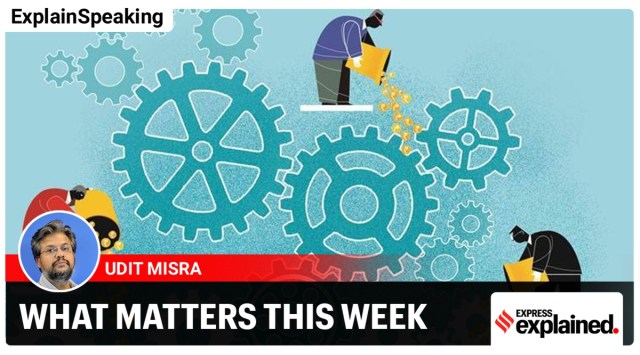- India
- International
ExplainSpeaking: Why cartels can be even worse than monopolies
Cartels neither have any incentive to invest in research aimed at improving their product nor do they see any reason to boost investments towards making the methods of production more efficient
 While it may be difficult to accurately quantify the ill-effects of cartels, they not only directly hurt the consumers but also, indirectly, undermine overall economic efficiency and innovations
While it may be difficult to accurately quantify the ill-effects of cartels, they not only directly hurt the consumers but also, indirectly, undermine overall economic efficiency and innovationsDear Readers,
Last week, the Competition Commission of India found that three beer companies — United Breweries Ltd (UBL), Carlsberg India Pvt Ltd (CIPL) and Anheuser Busch InBev India — had colluded to fix beer prices for a full decade — between 2009 and 2018. As a result, the CCI slapped a penalty of Rs 873 crore on the companies as well as the All India Brewers Association (AIBA) and 11 individuals for cartelisation in the sale and supply of beer in 10 states and Union Territories.
However, for helping out the investigations, the CCI gave differing levels of relief to the companies. In particular, Anheuser Busch InBev India — which serves global brands such as Budweiser and Corona as well as local brews such as Haywards and Knockout — received a 100% relief from the penalty because its officials helped the CCI investigation into the functioning of the cartel.
Oddly enough, the companies blamed government rules, which require them to seek approvals from state authorities for any price revisions, as the main reason for forming a cartel.
What is a cartel?

Cartels can be difficult to define. According to CCI, a “Cartel includes an association of producers, sellers, distributors, traders or service providers who, by agreement amongst themselves, limit, control or attempt to control the production, distribution, sale or price of, or, trade in goods or provision of services”.
The International Competition Network, which is a global body dedicated to enforcing competition law, has a simpler definition. The three common components of a cartel are:
- an agreement;
- between competitors;
- to restrict competition.
“The agreement that forms a cartel need not be formal or written. Cartels almost invariably involve secret conspiracies. The term competitors most often refers to companies at the same level of the economy (manufacturers, distributors, or retailers) in direct competition with each other to sell goods or provide services. The aspect of a restriction on competition distinguishes conduct that targets open competition from benign, ordinary course of business agreements between firms,” it states.
How do cartels work?
According to ICN, four categories of conduct are commonly identified across jurisdictions (countries). These are:
- price-fixing;
- output restrictions;
- market allocation and
- bid-rigging
“In sum,” writes Bruce Wardhaugh in his book titled Cartels, Markets and Crime, “participants in hard-core cartels agree to insulate themselves from the rigours of a competitive marketplace, substituting cooperation for competition”.
How do cartels hurt?
While it may be difficult to accurately quantify the ill-effects of cartels, they not only directly hurt the consumers but also, indirectly, undermine overall economic efficiency and innovations. According to the Organisation for Economic Co-operation and Development, “A successful cartel raises the price above the competitive level and reduces output. Consumers choose either not to pay the higher price for some or all of the cartelised product that they desire, thus forgoing the product, or they pay the cartel price and thereby unknowingly transfer wealth to the cartel operators”.
In other words, by artificially holding back the supply or raising prices in a coordinated manner, companies either force some consumers out of the market by making the commodity (say, beer) more scarce or by earning profits that free competition would not have allowed.
“Further, a cartel shelters its members from full exposure to market forces, reducing pressures on them to control costs and to innovate. All of these effects adversely affect efficiency in a market economy,” states an OECD policy brief.
How might cartels be worse than monopolies?
It is generally well understood that monopolies are bad for both individual consumer interest as well as the society at large. That’s because a monopolist completely dominates the concerned market and, more often than not, abuses this dominance either in the form of charging higher than warranted prices or by providing lower than the warranted quality of the good or service in question.
However, in his book, Bruce Wardhaugh explains how cartels could extract a higher social cost than even monopolies.“…Monopolies are a source of social loss through two sorts of productive inefficiencies. The first sort, reduced product innovation, is a greater problem with cartels than monopolies,” he writes.
Here’s the intuition. “…due to the explicit agreement of non-competition and profit guarantees among cartels, any incentive to improve one’s product is removed.”
In other words, unlike a monopolist, who may be forced to undertake product innovation — lest some new firm figures out a more efficient way of providing the good/service — members of a cartel sit pretty because they know that while none of them may be individually dominant in the market, by synching their pricing or productive actions they not only act as a monopolist but also rule out the possibility of allowing some new firm from upstaging the whole arrangement.
“Further,” he writes, “given that innovation would require the expenditure of research and development costs (which would be unnecessary due to a cartel-wide agreed ‘stand-still’ on innovation), such investment would not be undertaken. Since the monopolist, unlike the cartelist, must be concerned with other firms developing goods which may be less expensive substitutes for its goods, the monopolist may have greater incentive for research and development expenditure. Thus, these social costs of reduced product innovation may be greater with cartels.”
In other words, apart from the whole issue of charging higher prices, cartels (as against monopolists) neither have any incentive to invest in research aimed at improving their product nor do they see any reason why they should boost investments towards making the methods of production more efficient.
The end result is that both the individual consumer as well as the society at large suffers.
Newsletter | Click to get the day’s best explainers in your inbox
How to stop the spread of cartelisation?
Cartels are not easy to detect and identify. As such, experts often suggest providing a strong deterrence to those cartels that are found guilty of being one. Typically this takes the form of a monetary penalty that exceeds the gains amassed by the cartel.
“If, for example, the chances that any given cartel would be discovered and punished were one in three, then a fine that would provide an adequate deterrent would have to be three times the actual gain realised by the cartel. Some believe that as few as one in six or seven cartels are detected and prosecuted, implying a multiple of at least six,” states the OECD document.
However, it must also be pointed out that it is not always easy to ascertain the exact gains from cartelisation.
In fact, the threat of stringent penalties can be used in conjunction with providing leniency — as was done in the beer case when Anheuser Busch InBev India was provided with 100% relief from the CCI penalty — in order to incentivise whistleblowers exposing cartels and their functions.
Take care and stay safe,
Udit
More Explained
EXPRESS OPINION
Apr 18: Latest News
- 01
- 02
- 03
- 04
- 05










































